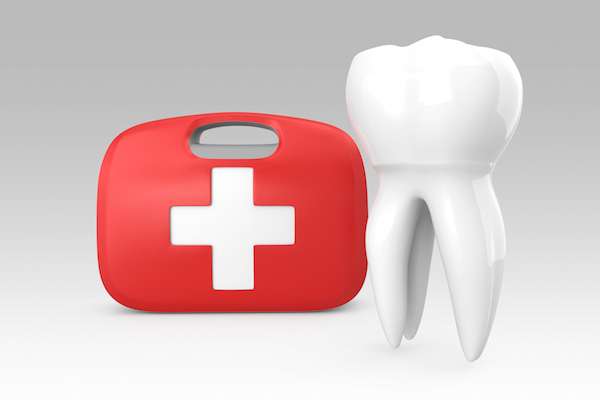Why You Should Avoid the ER for Emergency Dental Care
 Patients who are dealing with severe dental issues may think they should go to the ER for emergency dental care. This, however, is often ill-advised, as it may not be helpful in providing the proper treatments needed and can result in other problems arising.
Patients who are dealing with severe dental issues may think they should go to the ER for emergency dental care. This, however, is often ill-advised, as it may not be helpful in providing the proper treatments needed and can result in other problems arising.
Why emergency dental care isn’t a job for the emergency room
The following are a couple of reasons why patients should not go to an emergency room to try to receive dental care.
1. Limited treatment options
Emergency room doctors are often unable to provide much help for patients who are in need of emergency dental care. A dentist is the only professional who has the training to perform procedures such as pulling teeth or filling cavities. It is highly unlikely for an emergency room to have a dentist available on call. ER physicians are only able to prescribe painkillers to temporarily numb the pain and antibiotics to treat any infection that may be present. Neither of these solutions are a permanent fix to an emergent issue.
2. Astronomical costs
Many patients are unable to afford insurance and therefore cannot go to the dentist for routine cleanings and exams. This can result in those with issues such as pain, abscesses, severe toothaches and bleeding gums to ignore the problem and forego immediate dental care until it eventually becomes a serious and unbearable emergency. A visit to the emergency room is extraordinarily costly and typically results in a large bill and a referral to a dentist for treatment. A dental visit would typically cost less than a visit to an ER and allow for more targeted treatment of the problem.
How to avoid the need for emergency care
There are a few simple solutions for patients to follow to avoid emergency dental issues. Patients should practice proper dental hygiene procedures, such as brushing and flossing teeth twice a day, to preclude any complications from arising. Preventative care is also important; regular exams can catch dental problems quickly to stop them from turning into emergencies.
Patients should never ignore any pain. It is the body’s way of saying something is wrong, and ignoring such an issue can cause additional problems and more pain in the future. Those who are experiencing tooth or gum pain should contact a dentist as soon as possible. Waiting for too long can result in further issues that are likely to require more involved treatments.
Check out what others are saying about our dental services on Yelp: Emergency Dental Care in Franklin, IN.
Conclusion
For many oral-health related issues, going to an emergency room for dental care is not advisable. Due to issues such as high costs and limited treatment options, patients needing emergency dental care should instead schedule a visit with a dentist as soon as possible. It is also important for patients to avoid the need for emergency care by practicing proper oral hygiene as well as scheduling routine exams. Preventative care can help avoid a lot of pain and dental issues as well as save a considerable amount of time and money.
Request an appointment or call Cedar Lane Family Dentistry at 317-736-7476 for an appointment in our Franklin office.
Related Posts
When you first notice a chipped tooth, it can be easy to dismiss it as not serious or something that won't happen again. However, many things can happen if this chip is left untreated and goes unnoticed. If left untreated, it may cause additional damage. What started out as a potentially minor issue can develop…
A restorative dentist can help transform dental health and restore confidence in your smile. These dental professionals address a variety of dental issues, from missing teeth to damaged enamel. The goal of restorative dentistry is to improve both the function and appearance of your teeth, allowing you to achieve better oral health and renew your…
Flossing can seem like a chore, but the link between flossing and bleeding gums is clear. Sometimes, when you floss, you might occasionally find it causes your gums to bleed. That does not mean that flossing is bad for you — but you may not be doing it properly. Frequent flossing is the solution to…
